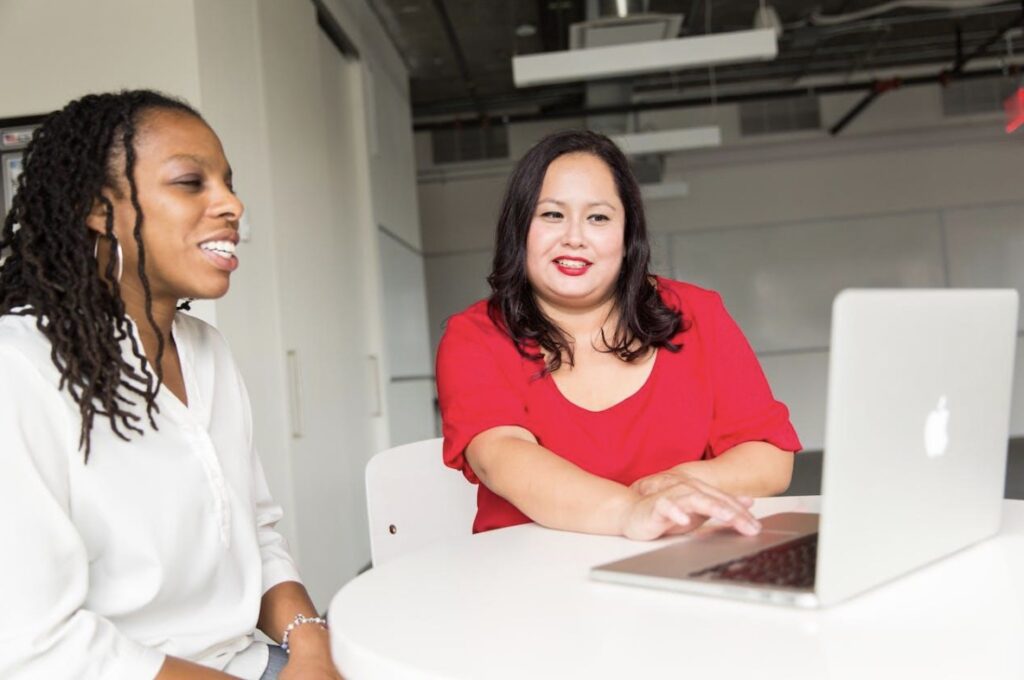How To Keep Growing In A Relationship

When you’ve been in a long-term relationship for a while, it’s easy to fall into a routine. You get comfortable with how things are, and the effort to keep it lively and exciting slowly dies out. Before you know it, you’re just two people standing alone in a relationship, coexisting from a distance.
Many of us assume that this is the norm – many people believe the honeymoon stage will not last forever. Relationships grow, mature, and with stability comes monotony. That, however, shouldn’t be the case. The truth is, we should all be seeking self-improvement at every stage of our lives. Being in a relationship is an opportunity to do so while also supporting someone else’s improvements.
Sure, in order to keep a relationship growing, it takes effort, and both parties must be committed to making it happen.
The Importance of Growing as an Individual
Providing support for your partner is an integral part of maintaining a relationship, but the amount of work you put into your self-improvement is just as beneficial and necessary. By investing time in your individual progress, your relationship grows richer, and both you and your partner become more fulfilled.
Preserving your respective individualities also keeps burnout from affecting your connection and keeps you from becoming dependent on your partner. Be aware of how you contribute to your relationship and bring as much into it as you get out of it.
How to keep your individuality
When in a relationship, especially a new one, it’s easy to get caught up in life as a couple and leave most, if not all, of your interests aside. It’s no coincidence that we are constantly fed the idea of finding our “other half” or our “missing piece.”
For many, this represents the romantic ideal of finally feeling complete as you find the one with whom you’re meant to spend your life. In reality, this concept reflects a toxic mentality that once in a relationship, we are no longer two individuals – but two codependent parts of a single unit.
Sometimes, compromises and sacrifices need to be made to maintain a relationship. Still, they must never come at the cost of neglecting or abandoning your authentic self. A relationship starts because two people feel captivated by each other’s individuality. When, down the line, one or both parties realize they have lost the essence of who they were at the beginning, frustration can arise, and frustration can bring on resentment and possibly a bitter end to the relationship.
There are many simple ways to avoid such unpleasant circumstances in the future, and they are all about nourishing your identity:
- Make time for your own hobbies and friends – maintaining your interests and relationships will not only keep you more fulfilled in life but will also give you more to talk about with your partner;
- Value your time apart from your partner – having your own alone time is fundamental in connecting with yourself. Figure out what your healthy balance of time together and time apart is.
- Pursue your personal goals – whether it’s getting a promotion, starting a blog, or reading a new book, have your objectives that are not linked to your relationship.
- Speak up for yourself – keeping your partner happy doesn’t mean giving up your needs and principles. Communicate your needs to your partner and know when to say “no” – mutual support is essential to any balanced relationship.
Supporting your partner’s growth
Growing in a relationship also means providing space for your partner to be authentic and express their individuality.
Research by the Society for Personality and Social Psychology concluded that people who received more support from their partners achieved more significant personal growth and relationship satisfaction. In contrast, those who were often criticized and invalidated by their partners presented lower self-improvement and relationship quality.
The study split the forms of partner support between two categories:
- Nurturant support: the efforts to console, express care, love, and concern for our partner, as well as to inspire confidence that they can achieve their goals;
- Action-facilitating support: the efforts to directly assist our partner, like offering information or advice on accomplishing their goals.
Balancing the two types of support is ideal, but the research results found nurturant support to be of primary importance. It facilitates self-improvement by fighting our partner’s feelings of low self-worth. In contrast, action-facilitated support provides resources and engages in activities that help our partner achieve change.
The simple habit of reaffirming your partner’s strengths and qualities can give them a significant confidence boost to chase their goals. After all, striving to be the best version of ourselves becomes more manageable when we feel like our partner treats us as if we already have those qualities.
Habits to avoid
Having a negative behavior towards your partner not only fails to provide support but actively undermines their personal growth efforts. Being overly critical and derogative and attempting to control or invalidate our partner’s views often come from our own insecurities.
Some bad habits to be mindful of are:
- Blaming your partner for things that are beyond their control;
- Insulting, belittling, and ridiculing them;
- Rejecting and invalidating their views and feelings;
- Demanding that your partner thinks or behaves in a certain way;
- Making assumptions about how your partner feels;
- Taking a domineering or patronizing stance in situations.
In most cases, the things we wish to change about our partner reflect our own insecurities or something we need to change about ourselves. Acknowledging our faults and giving up the need to always be right is a decisive step in self-development and a massive show of respect for our partner.
Grow together and keep things exciting
A relationship doesn’t grow on its own. It needs to be nurtured, and that demands effort from both parties. You and your partner need to be committed to sustaining your connection by taking an interest in what interests the other person, finding things you enjoy doing together, and making time for each other. There are many ways to keep growing together.
Maybe you need some insight? Take a listen to some couples therapy and dating podcasts during your downtime.
Remember, having serious conversations is an important part of maintaining a relationship. Having fun together and being playful and light with each other is just as important. Any time you spend together, apart, or supporting each other should be equally as valuable.
When embraced, change is not a threat to a relationship. On the opposite – it can bring you closer. When two people grow apart and together, it gives them new things to discover and admire about each other, keeping things fresh, scary, and exciting. There are many lives you can live with your partner, and there is no better feeling than knowing you have someone to navigate it all with you.
Author Bio:

Thaís Roberto is an English teacher and an academic researcher. Connect via https://www.twitter.com/thaisfroberto.












